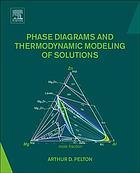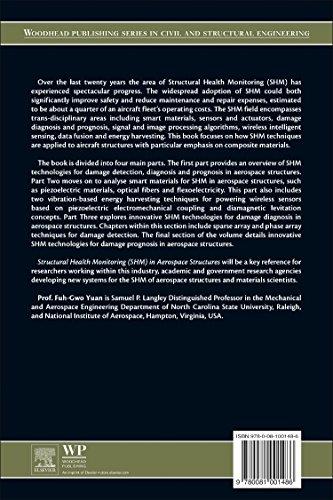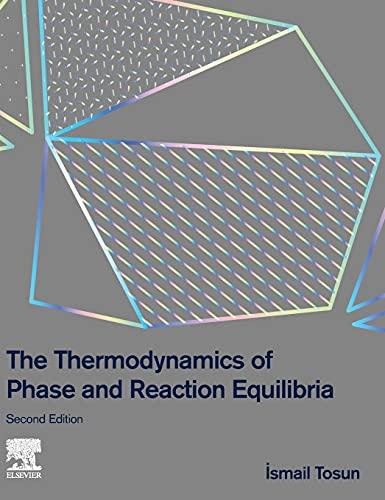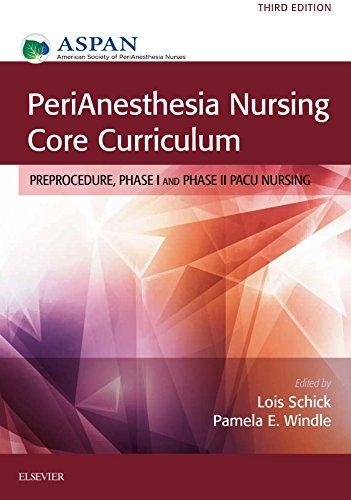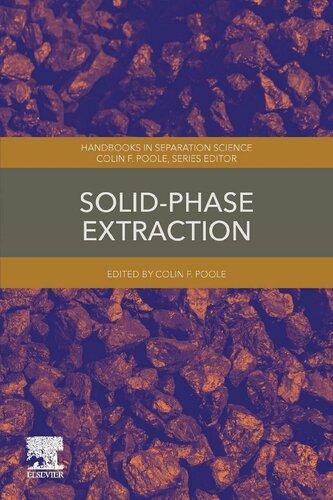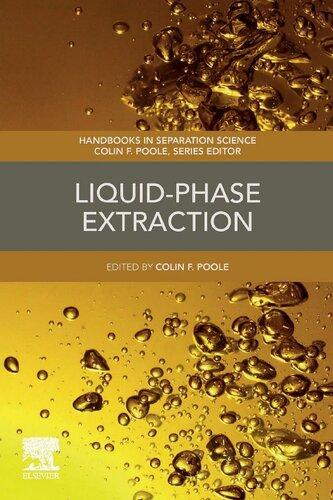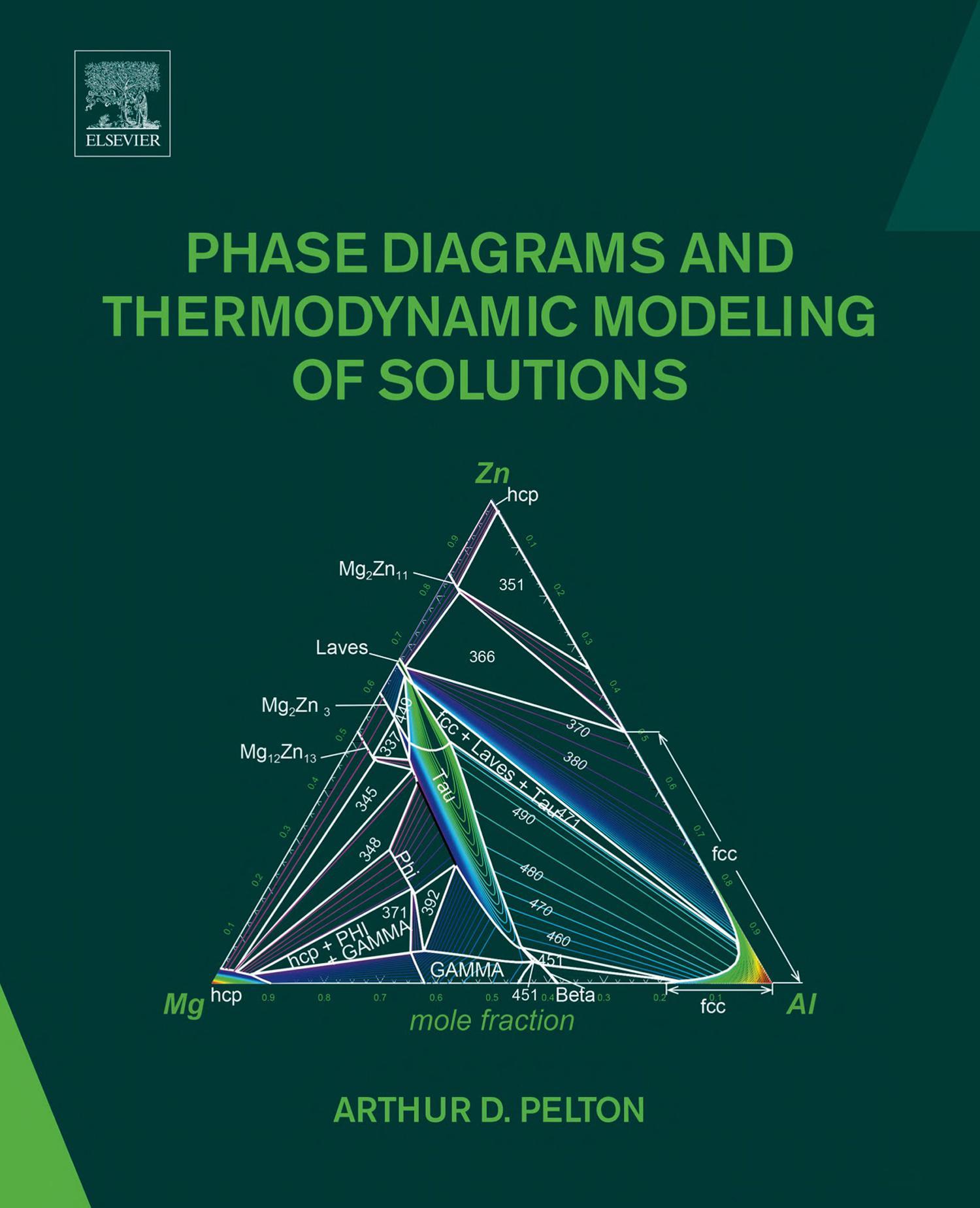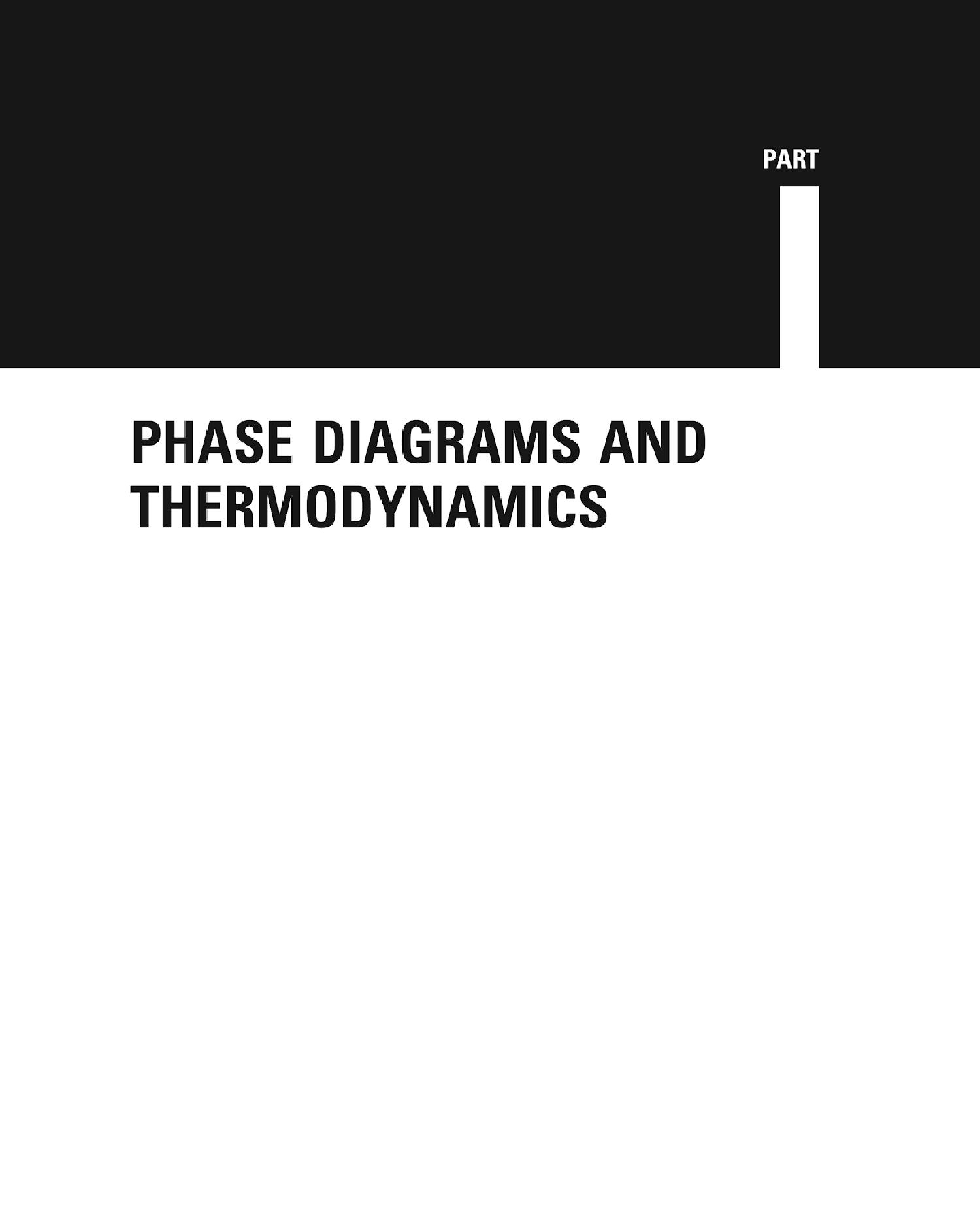1
Fig.1.1 Temperature-compositionphasediagramat P ¼ 1baroftheFe-Mosystem (Pelton,2014).
Fig.1.2 Isothermalphasediagramsectionat25°Cand P ¼ 1baroftheZn-Mg-Al system(Pelton,2014).
Chapter2 providesareviewofthefundamentalsofthermodynamicsasrequiredfortheinterpretationandcalculationofphase diagramsofalltypes.In Chapter3,theGibbsphaseruleisdevelopedinageneralformsuitablefortheunderstandingofphase diagramsinvolvingawiderangeofvariablesincludingchemical potentials,enthalpy,andvolume. Chapter4 providesareviewof
(Gamma + Phi + Tau)
(Liquid + Tau)
+ Phi + MgZn hcp + MgZn
+ Gamma + MgZn
(fcc + Laves + Mg2Zn11 (fcc + Mg 2Zn11 + hcp)
Fig.1.3 Isoplethalphasediagramsectionat XZn ¼ 0.1and P ¼ 1barofthe Zn-Mg-Alsystem.(A)Temperatureversuscomposition;(B)enthalpyversus composition(Pelton,2014).
thethermodynamicsofsolutions. Chapter5 beginswithadiscussionofthethermodynamicoriginofbinary T-compositionphase diagrams,presentedintheclassicalmannerinvolvingcommon tangentstocurvesofGibbsenergy. Chapter5 continueswitha thoroughdiscussionofallfeaturesof T-compositionphasediagramsofbinarysystemswithparticularstressontherelationship betweenthephasediagramandthethermodynamicpropertiesof thephases.Asimilardiscussionof T-compositionphasediagrams ofternarysystemsisgivenin Chapter6.Isothermalandisoplethal sectionsandpolythermalliquidusandsolidusprojectionsare discussed.
(mnprth) (eactuj) (gvaonqsui) (dobrsk) (fvcbpql)
bcc + fcc + MC fcc + MC bcc + M23C6 bcc + MC + M23C6 fcc + M7C3 fcc + M23C6
+ MC + M7C3 bcc + MC + M7C3 + M23C6 bcc +MC+M
Fig.1.4 PhasediagramsectionoftheFe-Cr-V-Csystemat850°C,0.3wt%C,and P ¼ 1bar(SGTE).
Spinel + Fe2O3
Spinel
+ Monoxide
Spinel + Monoxide
+ fcc
+ fcc
Fig.1.5 PhasediagramoftheFe-Ni-O2 systemat1200°Cshowingequilibrium oxygenpressureversusoverallmetalratio(Pelton,2014).
In Chapter7,thegeometryofgeneralphasediagramsections isdevelopedindepth.Inthischapter,thefollowingarepresented: thegeneralrulesofconstructionofphasediagramsections,the properchoiceofaxisvariablesandconstantsrequiredtogivea single-valuedphasediagramsectionwitheachpointofthediagramrepresentingauniqueequilibriumstate,andageneral bcc + MC
Pyrrhotite + FeCr2S4
Pyrrhotite + fcc
Pyrrhotite + bcc
fcc + M2O3
bcc
bcc + M2O3
925∞C, Molar ratio Cr/(Fe+Cr) = 0.5 log10p(O2) (bar)
Spinel fcc + Spinel
Fig.1.6 PhasediagramoftheFe-Cr-S2-O2 systemat925°CshowingequilibriumS2 andO2 partialpressuresatconstant molarratioCr/(Cr+Fe) ¼ 0.5(Pelton,2014).
Triple point
Fig.1.7 (A) P-T and(B) V-T phasediagramsofAl2SiO5 (Pelton,2014).
Kyanite
Sillimanite
Andalusite
Sillimanite + Kyanite
Andalusite + Sillimanite
Sillimanite
Andalusite Kyanite
Andalusite
algorithmforcalculatingallsuchphasediagramsections thermodynamically.
Chapter8 beginswithadiscussionofthecourseofequilibrium solidificationofbinary,ternary,andmulticomponentsystemsand includesaclassificationofinvariantreactions.Next,nonequilibriumScheil-Gulliversolidificationisdiscussedinwhichsolids, onceprecipitated,ceasetoreactwiththeliquidorwitheachother. Scheil-Gulliverconstituentdiagramsareintroducedfromwhich onecanvisualizethecourseofScheil-Gullivercoolingastemperatureandcompositionarevaried.Thecalculationandtheoryof thesediagramsarediscussed.
Chapter9 treatsparaequilibriuminwhich,duringcooling,rapidlydiffusingelementsreachequilibriumbutmoreslowlydiffusingelementsremainessentiallyimmobile.Paraequilibriumphase diagramsareintroduced,andtheapplicationofthePhaseRuleto thesediagramsisdeveloped.
Chapter10 providesanintroductiontophasediagramswith second-orderphasetransitionsandtoferromagneticandorder/ disordertransitions.
In Chapter11,phasediagramsforsystemsinvolvinganaqueousphaseincludingevaporationdiagrams,classicalEh-pHdiagrams(whicharenottruephasediagrams),andtrueaqueous phasediagramsarediscussed.
Finally, Chapter12 providesasurveyofphasediagramcompilationsandtextsontherelationshipbetweenthermodynamics andphasediagrams.
References
Pelton,A.D.,2014.In:Laughlin,D.E.,Hono,K.(Eds.),(Chapter3).PhysicalMetallurgy.fifthed.Elsevier,NewYork.
ListofWebsites
SGTE,ScientificGroupThermodataEurope, www.sgte.org.
Another random document with no related content on Scribd:
To the treatment of pleurisy and pneumonia we have already alluded, but the subject is so interesting that we cannot dismiss it with so brief a notice. In the ancient method of treating fevers and febrile affections three main objects would appear to have been kept in view: 1st, by depletions, to remove the morbid fluids from the general system, or to draw them off from a particular spot in which they had fixed; 2d, by diluents, to supply the waste of fluids occasioned by the preternatural heat of the body; and, 3d, to support the strength by a suitable supply of such nutriment as the system is then capable of receiving.
Now with regard to venesection, it will be seen in this and the preceding work that the practice is regulated by certain well-marked indications, namely, the seat of the pain, the condition of the patient, and the characters of the sputa. The purging is regulated by the state of matters below the chest, it being held as a general rule that clysters should be administered regularly every day during the first days of the fever. After purging comes the cooling drinks, such as oxymel. The administration of farinaceous food in a liquid state, that is to say, of unstrained ptisan, is to be regulated by the state of the sputa and urinary sediment, namely, when the sputa have put on a purulent appearance, and the sediment has become copious and reddish. Now this certainly seems to be a very intelligible and judicious rule for the administration of nutritious articles in febrile diseases. I need scarcely remark that at the present time there is scarcely a rule of practice in medicine which is worse defined than this respecting the administration of wine and other alimentary substances in febrile diseases. In proof of what is now stated, I would beg leave to refer the reader to what will be admitted to be one of the best authorities in modern literature on fever, I mean to Dr. Tweedie’s elaborate article on this subject, in the “Cyclopædia of Medicine.” It will be seen, at vol. ii., p. 208, that the rules for the administration of wine and other articles of food are by no means well defined. A cool skin and a soft pulse, when combined with debility, are the indications upon which most stress is laid; but the pulse, as long ago it was pronounced by Celsus to be, is “res
fallacissima,” and of this the excellent author seems to have been sensible; for the injunctions which he gives to regulate the administration of the wine and other articles, by the effects they produce, sufficiently show that he was sensible how deficient in precision our knowledge of the subject is at present. At the same time he makes it appear that he was well aware of one important fact in the treatment of febrile diseases, which, although distinctly recognized by Hippocrates, is still frequently overlooked by ordinary practitioners, namely, that in convalescence the stomach partakes of the general debility, and is unable to digest food in any great quantity at that time.[564] M. Littré further calls attention to another rule for the administration of wine, lately laid down by Dr. Stokes, of Dublin, which is certainly a most important one, provided it is confirmed by time and experience. It is founded on auscultation, and is to this effect; that when the impulse of the heart is abnormally weak, and when there is a diminution of the proportion between the two bruits, or when there is a preponderance in the sound of the second bruit, wine may be freely administered. Now, as I have said, this rule, if sanctioned by ample experience, is undoubtedly a most excellent one; but I may be allowed to remark, that my own observations on the heart in fever have led me to the conclusion that, as I have stated respecting the pulse, its sounds are very fallacious; and I must say that the rule of Hippocrates appears more likely to prove a certain guide in this instance. For is it not a natural view of the subject, that wine and other articles of food should be withheld while the emunctories are not in a condition to cast off the recrementitous superfluities of the system; but that when the secretions are properly established, alimentary substances may be safely administered?[565]
There is another point connected with the regimen in acute diseases on which I have a remark or two to make—it is the administration of animal matters in a fluid state, such as beef-tea, or soups from fowls. These we see frequently administered in febrile cases by practitioners of the present day, but by the ancient authorities they would appear to have been entirely rejected. Which
party is the safer guide in this case? For my own part, I have long thought that animal matters, when introduced into the system while in a febrile state, have a tendency to become putrid, and thereby to occasion an increase of the heat and general disorder.
After some defective observations on dysentery, our author treats of tetanus; but here Galen objects to the characters which he gives of the urine, and to his practice as regards the administration of wine. His views, however, are not very different from those which now prevail.
Having made some general remarks on the administration of hellebore, to which he was very partial, he proceeds to point out the bad effects resulting from any change in regimen. His views here are very similar to the observations contained in the preceding portion of the work, and in the treatise “On Ancient Medicine.”
The account of dry cholera is confused and vague. By it he would seem to mean flatulent colic, or drybelly-ache. See Opera, ed. Littré, tom. ii., p. 388.
The paragraph on dropsy is interesting, although the views taken of the subject are incomplete. Tympanitis is recognized as a variety of dropsy. Then follow some detached observations on persons whose bowels are heated, and on the regulation of the diet, with some remarks on the different states which counter-indicate purging. At § 23 there are some practical observations on various conditions of the constitution, which it would no doubt be proper for the physician to make himself acquainted with. The contents of all the remaining paragraphs would seem to have nothing to do with the subject of this treatise.
From what is now stated the reader will readily perceive that this treatise abounds in interesting matters, which, even at the present day, may prove suggestive of important views in the theory and practice of medicine. And although the style, in the judgment of Galen, be very different from Hippocrates, and the mode of thought deficient in that precision for which he is so remarkable, the treatise
is unquestionably a work of great ability, and contains what we have reason to regard as the results of his experience and meditations on many important subjects. I should have thought it quite unwarrantable, therefore, to have rejected this piece from a volume which professes to give all the genuine remains of our great author. And moreover, at the risk, perhaps, of being set down as an antique devotée, I do not hesitate to declare that in my opinion this and the preceding portion, taken together, contain more original information on the important subject to which they relate than is to be found in any medical work which has been written from the days of our author down to the present time.
I shall conclude the present Argument by giving from Cælius Aurelianus the criticisms of Soranus on the opinions of our author, as delivered in these two treatises. It is to be borne in mind that Soranus was the chief of the ancient sect of physicians called Methodici, which was very inimically disposed towards all the others, and more especially to Hippocrates. Though most of the strictures are evidently overstrained, it cannot fail to be interesting to the reader to have an opportunity of considering them, such as they are.
After giving an elaborate analysis of our author’s views, Cælius Aurelianus proceeds as follows: “His Soranus respondens ait. In calefactionibus acres esse sales, ac necessario tumorem provocare, febremque accendere, poscam etiam constringere et stricturam passionis augere. Item milium frixum graveolens et nidorosum, atque capiti grave, maximè acutè fabricitantium esse perspicimus. Spongiis etiam erat melius quenquam in dimissione patientes partes vaporare, atque oleo calido perfundere. Est præterea improprium, ac sine ratione, tunc uti phlebotomo quoties ad superiora dolor tetenderit; prohibere autem quoties ad inferiora descenderit. Oportet ergo sub hoc argumento neque difficultate tumorum partibus inferioribus impeditos phlebotomare: neque etiam podagricos si quidem inferiora tumere videantur, sed necessariò quoties dolor ad superiora tetenderit, phlebotomiam adhibendam videmus. Siquidem sæpe pejorante ventris fluore, hoc adjutorii genus prohibetur. Neque etiam (ut ait) oportet interiorem venam dividi. Siquidem et exteriori
et media divisa corpora releventur. Quippe quum e contrario interiorem prohibeant, propter magnitudinem, ne tumor augeatur. Item sanguinis mutatio iners est detractionis moderationi, sicuti de adjutoriis scribentes demonstrabimus. Sese denique idem Hippocrates impugnat in consequentibus, dicens usque ad animi defectum faciendam detractionem, quod magis vehementer est nocens: siquidem est pericolosa defectio, et neque si sit temporaliter defectionis causa, sensu carens ægrotans, dolore relevatus, videbitur (quum resumptus fuerit) rursum non dolere, quum magis atque magis ejusdem passionis debilia corpora vehementius officiant. Item purgativa medicamina (quæ Græci καθαρτικὰ vocant) acrimoniæ causa, stomachum tumentem, atque hypezocota membranum acuunt in tumorem; et in periculum ventris effusionem provocantia, magnificam passionis ingerunt vehementiam. Nutrire etiam cibo post medicamen non oportebat. Pugnat enim purgationi faciundæ illatum cibi nutrimentum. Quippe quum medicamine corruptum, officii sui careat viribus. Mitto etiam quod ex initio acescere facile ptisanæ succus perspiciatur, confectus quippe ex ordei succo, qui sit digestione difficilis. Dehine ægrotantis corpus non valet tantum sustinere nutrimentum, quantum sanitatis tempore solitum videbatur. Item mulsum ex aceto (quod oxymeli appellavit) sine discretione accipimus. Est etiam immodica usque ad septimum diem cibi abstinentia, quam custodiendam ordinavit.[566] Quippe cum nullus vehementiam passionis sustinere valet, nisi nutrimento quamvis parvo toleratus: et neque in declinatione passionis aliquid humanius cibo largitur, sed in iisdem sorbilibus perseverandum existimat succis. At cum fuerint sputa segniora, tunc ut existimat, erit primo æger nutriendus, quomodo necessariò declinante passione occurrunt intolerato. In cæteris relinquendum temporibus absque nutrimento ægrotantem apertissimè indicavit, quum semper plurimum utilitatis adjutorium cibi, quam cætera possunt adjutoria, largiatur. Omne etiam corpus erit unctione coæquandum, et non ejus particula. Quippe cum totum cibo nutriatur, ipsa quoque unctio non exerta, anxietatem ingerit ægrotanti, quæ latentem difficultatem, atque accessione veniente, corporis provocat incendium.”
APPENDIX TO THE WORK ON REGIMEN IN ACUTE DISEASES.
Ardent fever (causus)[567] takes place when the veins, being dried up in the summer season, attract acrid and bilious humors to themselves; and strong fever seizes the whole body, which experiences aches of the bones, and is in a state of lassitude and pain. It takes place most commonly from a long walk and protracted thirst, when the veins being dried up attract acrid and hot defluxions to themselves. The tongue becomes rough, dry, and very black; there are gnawing pains about the bowels; the alvine discharges are watery and yellow; there is intense thirst, insomnolency, and sometimes wandering of the mind. To a person in such a state give to drink water and as much boiled hydromel of a watery consistence as he will take; and if the mouth be bitter, it may be advantageous to administer an emetic and clyster; and if these things do not loosen the bowels, purge with the boiled milk of asses. Give nothing saltish nor acrid, for they will not be borne; and give no draughts of ptisan until the crisis be past. And the affection is resolved if there be an epistaxis, or if true critical sweats supervene with urine having white, thick, and smooth sediments, or if a deposit take place anywhere; but if it be resolved without these, there will be a relapse of the complaint, or pain in the hips and legs will ensue, with thick sputa, provided the patient be convalescent. Another species of ardent fever: belly loose, much thirst, tongue rough, dry, and saltish, retention of urine, insomnolency, extremities cold. In such a case, unless there be a flow of blood from the nose, or an abscess form about the neck, or pain in the limbs, or the patient expectorate thick sputa (these occur when the belly is constipated), or pain of the hips, or lividity of the genital organs, there is no crisis; tension of the testicle is also a critical symptom. Give attractive draughts.[568]
2. Bleed in the acute affections, if the disease appear strong, and the patients be in the vigor of life, and if they have strength.[569] If
it be quinsy or any other of the pleuritic affections, purge with electuaries; but if the patient be weaker, or if you abstract more blood, you may administer a clyster every third day, until he be out of danger, and enjoin total abstinence if necessary.
3. Hypochondria inflamed not from retention of flatus, tension of the diaphragm, checked respiration, with dry orthopnœa, when no pus is formed, but when these complaints are connected with obstructed respiration; but more especially strong pains of the liver, heaviness of the spleen, and other phlegmasiæ and intense pains above the diaphragm, diseases connected with collections of humors,—all these diseases do not admit of resolution, if treated at first by medicine, but venesection holds the first place in conducting the treatment; then we may have recourse to a clyster, unless the disease be great and strong; but if so, purging also may be necessary; but bleeding and purging together require caution and moderation. Those who attempt to resolve inflammatory diseases at the commencement by the administration of purgative medicines, remove none of the morbific humors which produce the inflammation and tension: for the diseases while unconcocted could not yield, but they melt down those parts which are healthy and resist the disease; so when the body is debilitated the malady obtains the mastery; and when the disease has the upper hand of the body, it does not admit of a cure.[570]
4. When a person suddenly loses his speech, in connection with obstruction of the veins,—if this happen without warning or any other strong cause, one ought to open the internal vein of the right arm, and abstract blood more or less according to the habit and age of the patient. Such cases are mostly attended with the following symptoms: redness of the face, eyes fixed, hands distended, grinding of the teeth, palpitations, jaws fixed, coldness of the extremities, retention of airs in the veins.[571]
5. When pains precede, and there are influxes of black bile and of acrid humors, and when by their pungency the internal parts are pained, and the veins being pinched and dried become distended,
and getting inflamed attract the humors running into the parts, whence the blood being vitiated, and the airs collected there not being able to find their natural passages, coldness comes on in consequence of this stasis, with vertigo, loss of speech, heaviness of the head, and convulsion, if the disease fix on the liver, the heart, or the great vein (vena cava?); whence they are seized with epilepsy or apoplexy, if the defluxions fall upon the containing parts,[572] and if they are dried up by airs which cannot make their escape; such persons having been first fomented are to be immediately bled at the commencement, while all the peccant vapors and humors are buoyant, for then the cases more easily admit of a cure; and then supporting the strength and attending to the crisis, we may give emetics, unless the disease be alleviated; or if the bowels be not moved, we may administer a clyster and give the boiled milk of asses, to the amount of not less than twelve heminæ, or if the strength permit, to more than sixteen.
6. Quinsy takes place when a copious and viscid defluxion from the head, in the season of winter or spring, flows into the jugular veins, and when from their large size they attract a greater defluxion; and when owing to the defluxion being of a cold and viscid nature it becomes enfarcted, obstructing the passages of the respiration and of the blood, coagulates the surrounding blood, and renders it motionless and stationary, it being naturally cold and disposed to obstructions. Hence they are seized with convulsive suffocation, the tongue turning livid, assuming a rounded shape, and being bent owing to the veins which are seated below the tongue (for when an enlarged uvula, which is called uva, is cut, a large vein may be observed on each side). These veins, then, becoming filled, and their roots extending into the tongue, which is of a loose and spongy texture, it, owing to its dryness receiving forcibly the juice from the veins, changes from broad and becomes round, its natural color turns to livid, from a soft consistence it grows hard, instead of being flexible it becomes inflexible, so that the patient would soon be suffocated unless speedily relieved. Bleeding, then, in the arm, and opening the sublingual veins, and purging with the electuaries,
and giving warm gargles, and shaving the head, we must apply to it and the neck a cerate, and wrap them round with wool, and foment with soft sponges squeezed out of hot water; give to drink water and hydromel, not cold; and administer the juice of ptisan when, having passed the crisis, the patient is out of danger. When, in the season of summer or autumn, there is a hot and nitrous defluxion from the head (it is rendered hot and acrid by the season), being of such a nature it corrodes and ulcerates, and fills with air, and orthopnœa attended with great dryness supervenes; the fauces, when examined, do not seem swollen; the tendons on the back part of the neck are contracted, and have the appearance as if it were tetanus; the voice is lost, the breathing is small, and inspiration becomes frequent and laborious. In such persons the trachea becomes ulcerated, and the lungs engorged, from the patient’s not being able to draw in the external air. In such cases, unless there be a spontaneous determination to the external parts of the neck, the symptoms become still more dreadful, and the danger more imminent, partly owing to the season, and the hot and acrid humors which cause the disease.[573]
7. When fever seizes a person who has lately taken food, and whose bowels are loaded with fæces which have been long retained, whether it be attended with pain of the side or not, he ought to lie quiet until the food descend to the lower region of the bowels, and use oxymel for drink; but when the load descends to the loins, a clyster should be administered, or he should be purged by medicine; and when purged, he should take ptisan for food and hydromel for drink; then he may take the cerealia, and boiled fishes, and a watery wine in small quantity, at night, but during the day, a watery hydromel. When the flatus is offensive, either a suppository or clyster is to be administered; but otherwise the oxymel is to be discontinued, until the matters descend to the lower part of the bowels, and then they are to be evacuated by a clyster. But if the ardent fever (causus) supervene when the bowels are empty, should you still judge it proper to administer purgative medicine, it ought not be done during the first three days, nor earlier than the fourth.
When you give the medicine, use the ptisan, observing the paroxysms of the fevers, so as not to give it when the fever is setting in, but when it is ceasing, or on the decline, and as far as possible from the commencement. When the feet are cold, give neither drink nor ptisan, nor anything else of the kind, but reckon it an important rule to refrain until they become warm, and then you may administer them with advantage. For the most part, coldness of the feet is a symptom of a paroxysm of the fever coming on; and if at such a season you apply those things, you will commit the greatest possible mistake, for you will augment the disease in no small degree. But when the fever ceases, the feet, on the contrary, become hotter than the rest of the body; for when the heat leaves the feet, it is kindled up in the breast, and sends its flame up to the head. And when all the heat rushes upwards, and is exhaled at the head, it is not to be wondered at that the feet become cold, being devoid of flesh, and tendinous; and besides, they contract cold, owing to their distance from the hotter parts of the body, an accumulation of heat having taken place in the chest: and again, in like manner, when the fever is resolved and dissipated, the heat descends to the feet, and, at the same time, the head and chest become cold. Wherefore one should attend to this; that when the feet are cold, the bowels are necessarily hot, and filled with nauseous matters; the hypochondrium distended: there is jactitation of the body, owing to the internal disturbance; and aberration of the intellect, and pains; the patient is agitated, and wishes to vomit, and if he vomits bad matters he is pained; but when the heat descends to the feet, and the urine passes freely, he is every way lightened, even although he does not sweat; at this season, then, the ptisan ought to be given; it would be death to give it before.[574]
8. When the bowels are loose during the whole course of fevers, in this case we are most especially to warm the feet, and see that they are properly treated with cerates, and wrapped in shawls, so that they may not become colder than the rest of the body; but when they are hot, no fomentation must be made to them, but care is to be taken that they do not become cold; and very little drink is
to be used, either cold water or hydromel. In those cases of fever where the bowels are loose, and the mind is disordered, the greater number of patients pick the wool from their blankets, scratch their noses, answer briefly when questions are put to them, but, when left to themselves, utter nothing that is rational. Such attacks appear to me to be connected with black bile. When in these cases there is a colliquative diarrhœa, I am of opinion that we ought to give the colder and thicker ptisans, and that the drinks ought to be binding, of a vinous nature, and rather astringent. In cases of fever attended from the first with vertigo, throbbing of the head, and thin urine, you may expect the fever to be exacerbated at the crisis; neither need it excite wonder, although there be delirium. When, at the commencement, the urine is cloudy or thick, it is proper to purge gently, provided this be otherwise proper; but when the urine at first is thin, do not purge such patients, but, if thought necessary, give a clyster: such patients should be thus treated; they should be kept in a quiet state, have unguents applied to them, and be covered up properly with clothes, and they should use for drink a watery hydromel, and the juice of ptisan as a draught in the evening; clear out the bowels at first with a clyster, but give no purgative medicines to them, for, if you move the bowels strongly, the urine is not concocted, but the fever remains long, without sweats and without a crisis. Do not give draughts when the time of the crisis is at hand, if there be agitation, but only when the fever abates and is alleviated. It is proper to be guarded at the crises of other fevers, and to withhold the draughts at that season. Fevers of this description are apt to be protracted, and to have determinations, if the inferior extremities be cold, about the ears and neck, or, if these parts are not cold, to have other changes; they have epistaxis, and disorder of the bowels. But in cases of fever attended with nausea, or distention of the hypochondria, when the patients cannot lie reclined in the same position, and the extremities are cold, the greatest care and precaution are necessary; nothing should be given to them, except oxymel diluted with water; no draught should be administered, until the fever abate and the urine be concocted; the patient should be laid in a dark apartment, and recline upon the softest couch, and he
should be kept as long as possible in the same position, so as not to toss about, for this is particularly beneficial to him. Apply to the hypochondrium linseed by inunctions, taking care that he do not catch cold when the application is made; let it be in a tepid state, and boiled in water and oil. One may judge from the urine what is to take place, for if the urine be thicker, and more yellowish, so much the better; but if it be thinner, and blacker, so much the worse;[575] but if it undergo changes, it indicates a prolongation of the disease, and the patient, in like manner, must experience a change to the worse and the better. Irregular fevers should be let alone until they become settled, and, when they do settle, they are to be treated by a suitable diet and medicine, attending to the constitution of the patient.
9. The aspects of the sick are various; wherefore the physician should pay attention, that he may not miss observing the exciting causes, as far as they can be ascertained by reasoning, nor such symptoms as should appear on an even or odd day, but he ought to be particularly guarded in observing the odd days, as it is in them, more especially, that changes take place in patients. He should mark, particularly, the first day on which the patient became ill, considering when and whence the disease commenced, for this is of primary importance to know. When you examine the patient, inquire into all particulars; first how the head is, and if there be no headache, nor heaviness in it; then examine if the hypochondria and sides be free of pain; for if the hypochondrium be painful, swelled, and unequal, with a sense of satiety, or if there be pain in the side, and, along with the pain, either cough, tormina, or belly-ache, if any of these symptoms be present in the hypochondrium, the bowels should be opened with clysters, and the patient should drink boiled hydromel in a hot state. The physician should ascertain whether the patient be apt to faint when he is raised up, and whether his breathing be free; and examine the discharges from the bowels, whether they be very black, or of a proper color, like those of persons in good health, and ascertain whether the fever has a paroxysm every third day, and look well to such persons on those
days. And should the fourth day prove like the third, the patient is in a dangerous state.[576] With regard to the symptoms, black stools prognosticate death; but if they resemble the discharges of a healthy person, and if such is their appearance every day, it is a favorable symptom; but when the bowels do not yield to a suppository, and when, though the respiration be natural, the patient when raised to the night-table, or even in bed, be seized with deliquium, you may expect that the patient, man or woman, who experiences these symptoms, is about to fall into a state of delirium. Attention also should be paid to the hands, for if they tremble, you may expect epistaxis; and observe the nostrils, whether the breath be drawn in equally by both; and if expiration by the nostrils be large, a convulsion is apt to take place; and should a convulsion occur to such a person, death may be anticipated, and it is well to announce it beforehand.
10. If, in a winter fever, the tongue be rough, and if there be swoonings, it is likely to be the remission of the fever. Nevertheless such a person is to be kept upon a restricted diet, with water for drink, and hydromel, and the strained juices, not trusting to the remission of the fevers, as persons having these symptoms are in danger of dying; when, therefore, you perceive these symptoms, announce this prognostic, if you shall judge proper, after making the suitable observations. When, in fevers, any dangerous symptom appears on the fifth day, when watery discharges suddenly take place from the bowels, when deliquium animi occurs, or the patient is attacked with loss of speech, convulsions, or hiccup, under such circumstances he is likely to be affected with nausea, and sweats break out under the nose and forehead, or on the back part of the neck and head, and patients with such symptoms shortly die, from stoppage of the respiration.[577] When, in fevers, abscesses form about the legs, and, getting into a chronic state, are not concocted while the fever persists, and if one is seized with a sense of suffocation in the throat, while the fauces are not swelled, and if it do not come to maturation, but is repressed, in such a case there is apt to be a flow of blood from the nose; if this, then, be copious, it
indicates a resolution of the disease, but if not, a prolongation of the complaint; and the less the discharge, so much worse the symptoms, and the more protracted the disease; but if the other symptoms are very favorable, expect in such a case that pains will fall upon the feet; if then they attack the feet, and if those continue long in a very painful, and inflamed state, and if there be no resolution, the pains will extend by degrees to the neck, to the clavicle, shoulder, breast, or to some articulation, in which an inflammatory tumour will necessarily form. When these are reduced, if the hands are contracted, and become trembling, convulsion and delirium seize such a person; but blisters break out on the eyebrow, erythema takes place, the one eyelid being tumefied overtops the other, a hard inflammation sets in, the eye become strongly swelled, and the delirium increases much, but makes its attacks rather at night than by day. These symptoms more frequently occur on odd than on even days, but, whether on the one or the other, they are of a fatal character. Should you determine to give purgative medicines in such cases, at the commencement, you should do so before the fifth day, if there be borborygmi in the bowels, or, if not, you should omit the medicines altogether. If there be borborygmi, with bilious stools, purge moderately with scammony; but with regard to the treatment otherwise, administer as few drinks and draughts as possible, until there be some amendment, and the disease is past the fourteenth day. When loss of speech seizes a person, on the fourteenth day of a fever, there is not usually a speedy resolution, nor any removal of the disease, for this symptom indicates a protracted disease; and when it appears on that day, it will be still more prolonged. When, on the fourth day of a fever, the tongue articulates confusedly, and when there are watery and bilious discharges from the bowels, such a patient is apt to fall into a state of delirium; the physician ought, therefore, to watch him, and attend to whatever symptoms may turn up. In the season of summer and autumn an epistaxis, suddenly occurring in acute diseases, indicates vehemence of the attack, and inflammation in the course of the veins, and on the day following, the discharge of thin urine; and if the patient be in the prime of life, and if his body be strong from
exercise, and brawny, or of a melancholic temperament, or if from drinking he has trembling hands, it may be well to announce beforehand either delirium or convulsion;[578] and if these symptoms occur on even days, so much the better; but on critical days, they are of a deadly character. If, then, a copious discharge of blood procure an issue to the fullness thereof about the nose, or what is collected about the anus, there will be an abscess, or pains in the hypochondrium, or testicles, or in the limbs; and when these are resolved, there will be a discharge of thick sputa, and of smooth, thin urine. In fever attended with singultus, give asafœtida, oxymel, and carrot, triturated together, in a draught; or galbanum in honey, and cumin in a linctus, or the juice of ptisan. Such a person cannot escape, unless critical sweats and gentle sleep supervene, and thick and acrid urine be passed, or the disease terminate in an abscess: give pine-fruit[579] and myrrh in a linctus, and further give a very little oxymel to drink; but if they are very thirsty, some barley-water.
11. Peripneumonia, and pleuritic affections, are to be thus observed: If the fever be acute, and if there be pains on either side, or in both, and if expiration be attended with pain, if cough be present, and the sputa expectorated be of a blond or livid color, or likewise thin, frothy, and florid, or having any other character different from the common, in such a case, the physician should proceed thus: if the pain pass upward to the clavicle, or the breast, or the arm, the inner vein in the arm should be opened on the side affected, and blood abstracted according to the habit, age, and color of the patient, and the season of the year, and that largely and boldly, if the pain be acute, so as to bring on deliquium animi,[580] and afterwards a clyster is to be given. But if the pain be below the chest, and if very intense, purge the bowels gently in such an attack of pleurisy, and during the act of purging give nothing; but after the purging give oxymel. The medicine is to be administered on the fourth day; on the first three days after the commencement, a clyster should be given, and if it does not relieve the patient, he should then be gently purged, but he is to be watched until the fever
goes off, and till the seventh day; then if he appear to be free from danger, give him some unstrained ptisan, in small quantity, and thin at first, mixing it with honey. If the expectoration be easy, and the breathing free, if his sides be free of pain, and if the fever be gone, he may take the ptisan thicker, and in larger quantity, twice a day. But if he do not progress favorably, he must get less of the drink, and of the draught, which should be thin, and only given once a day, at whatever is judged to be the most favorable hour; this you will ascertain from the urine. The draught is not to be given to persons after fever, until you see that the urine and sputa are concocted, (if, indeed, after the administration of the medicine he be purged frequently, it may be necessary to give it, but it should be given in smaller quantities and thinner than usual, for from inanition he will be unable to sleep, or digest properly, or wait the crisis;) but when the melting down of crude matters has taken place, and his system has cast off what is offensive, there will then be no objection. The sputa are concocted when they resemble pus, and the urine when it has reddish sediments like tares. But there is nothing to prevent fomentation and cerates being applied for the other pains of the sides; and the legs and loins may be rubbed with hot oil, or anointed with fat; linseed, too, in the form of a cataplasm, may be applied to the hypochondrium and as far up as the breasts. When pneumonia is at its height, the case is beyond remedy if he is not purged, and it is bad if he has dyspnœa, and urine that is thin and acrid, and if sweats come out about the neck and head, for such sweats are bad, as proceeding from the suffocation, râles, and the violence of the disease which is obtaining the upper hand, unless there be a copious evacuation of thick urine, and the sputa be concocted; when either of these come on spontaneously, that will carry off the disease. A linctus for pneumonia: Galbanum and pine-fruit in Attic honey; and southernwood in oxymel; make a decoction of pepper and black hellebore, and give it in cases of pleurisy attended with violent pain at the commencement. It is also a good thing to boil opoponax in oxymel, and, having strained it, to give it to drink; it answers well, also, in diseases of the liver, and in severe pains proceeding from the diaphragm, and in all cases in which it is beneficial to determine to
the bowels or urinary organs, when given in wine and honey; when given to act upon the bowels, it should be drunk in larger quantity, along with a watery hydromel.
12. A dysentery, when stopped, will give rise to an aposteme, or tumour, if it do not terminate in fevers with sweats, or with thick and white urine, or in a tertian fever, or the pain fix upon a varix, or the testicles, or on the hip-joints.[581]
13. In a bilious fever, jaundice coming on with rigor before the seventh day carries off the fever, but if it occur without the fever, and not at the proper time, it is a fatal symptom.
14. When the loins are in a tetanic state, and the spirits in the veins are obstructed by melancholic humors, venesection will afford relief.[582] But when, on the other hand, the anterior tendons are strongly contracted, and if there be sweats about the neck and face, extorted by the violent pain of the parched and dried tendons of the sacral extremity (these are very thick, sustaining the spine, and giving rise to very great ligaments, which terminate in the feet,) in such a case, unless fever and sleep come on, followed by concocted urine and critical sweats, give to drink a strong Cretan wine, and boiled barley-meal for food; anoint and rub with ointments containing wax; bathe the legs and feet in hot water, and then cover them up; and so in like manner the arms, as far as the hands, and the spine, from the neck to the sacrum, are to be wrapped in a skin smeared with wax; this must extend to the parts beyond, and intervals are to be left for applying fomentations, by means of leather bottles filled with hot water, then, wrapping him up in a linen cloth, lay him down in bed. Do not open the bowels, unless by means of a suppository, when they have been long of being moved. If there be any remission of the disease, so far well, but otherwise, pound of the root of bryonia[583] in fragrant wine, and that of the carrot, and give to the patient fasting early in the morning, before using the affusion, and immediately afterwards let him eat boiled barley-meal in a tepid state, and as much as he can take, and in addition let him drink, if he will, wine well diluted. If the disease
yield to these means, so much the better, but, if otherwise, you must prognosticate accordingly.
15. All diseases are resolved either by the mouth, the bowels, the bladder, or some other such organ. Sweat is a common form of resolution in all these cases.[584]
16. You should put persons on a course of hellebore who are troubled with a defluxion from the head. But do not administer hellebore to such persons as are laboring under empyema connected with abscesses, hæmoptysis, and intemperament, or any other strong cause, for it will do no good; and if anything unpleasant occur the hellebore will get the blame of it. But if the body have suddenly lost its powers, or if there be pain in the head, or obstruction of the ears and nose, or ptyalism, or heaviness of the limbs, or an extraordinary swelling of the body, you may administer the hellebore, provided these symptoms be not connected with drinking, nor with immoderate venery; nor with sorrow, vexation, nor insomnolency, for, if any of these causes exist, the treatment must have respect to it.
17. From walking arise pains of the sides, of the back, of the loins, and of the hip-joint, and disorder of the respiration has often been from the same cause, for, after excesses of wine and flatulent food, pains shoot to the loins and hips, accompanied with dysuria. [585] Walking is the cause of such complaints, and also of coryza and hoarseness.
18. Disorders connected with regimen, for the most part, make their attack accordingly as any one has changed his habitual mode of diet.[586] For persons who dine contrary to custom experience much swelling of the stomach, drowsiness, and fullness; and if they take supper over and above, their belly is disordered; such persons will be benefited by sleeping after taking the bath, and by walking slowly for a considerable time after sleep; if, then, the bowels be moved, he may dine and drink a small quantity of wine not much diluted; but if the bowels are not opened, he should get his body
rubbed with hot oil, and, if thirsty, drink of some weak and white wine, or a sweet wine, and take repose; if he does not sleep he should repose the longer. In other respects he should observe the regimen laid down for those who have taken a debauch. With regard to the bad effects of drinks, such as are of a watery nature pass more slowly through the body, they regurgitate, as it were, and float about the hypochondria, and do not flow readily by urine; when filled up with such a drink, he should not attempt any violent exertion, requiring either strength or swiftness, but should rest as much as possible until the drink has been digested along with the food; but such drinks as are stronger or more austere, occasion palpitation in the body and throbbing in the head, and in this case the person affected will do well to sleep, and take some hot draught for which he feels disposed; for abstinence is bad in headache and the effects of a surfeit. Those who, contrary to usage, restrict themselves to one meal, feel empty and feeble, and pass hot urine in consequence of the emptiness of their vessels; they have a salt and bitter taste in the mouth; they tremble at any work they attempt; their temples throb; and they cannot digest their supper so well as if they had previously taken their dinner. Such persons should take less supper than they are wont, and a pudding of barley-meal more moist than usual instead of bread, and of potherbs the dock, or mallow, and ptisan, or beets, and along with the food they should take wine in moderation, and diluted with water; after supper they should take a short walk, until the urine descend and be passed; and they may use boiled fish.
Articles of food have generally such effects as the following:[587] Garlic occasions flatulence and heat about the chest, heaviness of the head, and nausea, and any other habitual pain is apt to be exasperated by it; it is diuretic, which, in so far, is a good property which it possesses; but it is best to eat it when one means to drink to excess, or when intoxicated. Cheese produces flatulence and constipation, and heats the other articles of food; and it gives rise to crudities and indigestion, but it is worst of all to eat it along with drink after a full meal. Pulse of all kinds are flatulent, whether raw,
boiled, or fried; least so when macerated in water, or in a green state; they should not be used except along with food prepared from the cerealia. Each of these articles, however, has bad effects peculiar to itself. The vetch, whether raw or boiled, creates flatulence and pain. The lentil is astringent, and disorders the stomach if taken with its hull. The lupine has the fewest bad effects of all these things. The stalk and the juice of silphium (asafœtida), pass through some people’s bowels very readily, but in others, not accustomed to them, they engender what is called dry cholera;[588] this complaint is more especially produced by it if mixed with much cheese, or eaten along with beef. Melancholic diseases are most particularly exacerbated by beef, for it is of an unmanageable nature, and requires no ordinary powers of stomach to digest it; it will agree best with those who use it well boiled and pretty long kept. Goat’s flesh has all the bad properties of beef; it is as indigestible, more flatulent and engenders acid eructations and cholera; such as has a fragrant smell, is firm, and sweet to the taste, is the best, when well baked and cooled; but those kinds which are disagreeable to the taste, have a bad smell, and are hard, such are particularly bad, and especially if very fresh; it is best in summer and worst in autumn. The flesh of young pigs is bad, either when it is too raw or when it is over-roasted, for it engenders bile and disorders the bowels. Of all kinds of flesh, pork is the best; it is best when neither very fat, nor, on the other hand, very lean, and the animal had not attained the age of what is reckoned an old victim; it should be eaten without the skin, and in a coldish state.
19. In dry cholera the belly is distended with wind, there is rumbling in the bowels, pain in the sides and loins, no dejections, but, on the contrary, the bowels are constipated. In such a case you should guard against vomiting, but endeavor to get the bowels opened. As quickly as possible give a clyster of hot water with plenty of oil in it, and having rubbed the patient freely with unguents, put him into hot water, laying him down in the basin, and pouring the hot water upon him by degrees; and if, when heated in the bath, the bowels be moved, he will be freed from the complaint. To a person
in such a complaint it will do good if he sleep, and drink a thin, old, and strong wine; and you should give him oil, so that he may settle, and have his bowels moved, when he will be relieved. He must abstain from all other kinds of food; but when the pain remits, give him asses’ milk to drink until he is purged. But if the bowels are loose, with bilious discharges, tormina, vomitings, a feeling of suffocation, and gnawing pains, it is best to enjoin repose, and to drink hydromel, and avoid vomiting.
20. There are two kinds of dropsy, the one anasarca, which, when formed, is incurable; the other is accompanied with emphysema (tympanites?) and requires much good fortune to enable one to triumph over it.[589] Laborious exertion, fomentation, and abstinence (are to be enjoined). The patient should eat dry and acrid things, for thus will he pass the more water, and his strength be kept up. If he labors under difficulty of breathing, if it is the summer season, and if he is in the prime of life, and is strong, blood should be abstracted from the arm, and then he should eat hot pieces of bread, dipped in dark wine and oil, drink very little, and labor much, and live on well-fed pork, boiled with vinegar, so that he may be able to endure hard exercises.[590]
21. Those who have the inferior intestines hot, and who pass acrid and irregular stools of a colliquative nature, if they can bear it, should procure revulsion by vomiting with hellebore; but if not, should get a thick decoction of summer wheat in a cold state, lentil soup, bread cooked with cinders, and fish, which should be taken boiled if they have fever, but roasted if not feverish; and also darkcolored wine if free of fever; but otherwise they should take the water from medlars, myrtles, apples, services, dates, or wild vine. If there be no fever, and if there be tormina, the patient should drink hot asses’ milk in small quantity at first, and gradually increase it, and linseed, and wheaten flour, and having removed the bitter part of Egyptian beans, and ground them, sprinkle on the milk and drink; and let him eat eggs half-roasted, and fine flour, and millet, and perl-spelt (chondrus) boiled in milk;—all these things should be
eaten cold, and similar articles of food and drink should be administered.
22. The most important point of regimen to observe and be guarded about in protracted diseases, is to pay attention to the exacerbations and remissions of fevers, so as to avoid the times when food should not be given, and to know when it may be administered without danger; this last season is at the greatest possible distance from the exacerbation.
23. One should be able to recognize those who have headache from gymnastic exercises, or running, or walking or hunting, or any other unseasonable labour, or from immoderate venery; also those who are of a pale colour, or troubled with hoarseness; those who have enlarged spleen, those who are in a state of anæmia, those who are suffering from tympanites, those having dry cough and thirst, those who are flatulent, and have the course of the blood in their veins intercepted; those persons whose hypochondria, sides, and back are distended; those having torpor; those laboring under amaurosis, or having noises in their ears; those suffering from incontinence of urine or jaundice, or whose food is passed undigested; those who have discharges of blood from the nose or anus, or who have flatulence and intense pain, and who cannot retain the wind. In these cases you may do mischief, but cannot possibly do any good by purging, but may interrupt the spontaneous remissions and crises of the complaints.[591]
24. If you think it expedient to let blood, see that the bowels be previously settled, and then bleed; enjoin abstinence, and forbid the use of wine; and complete the cure by means of a suitable regimen, and wet fomentations.[592] But if the bowels appear to be constipated, administer a soothing clyster.
25.[593] If you think it necessary to give medicines, you may safely purge upwards by hellebore, but none of those should be purged downwards. The most effectual mode of treatment is by the urine, sweats, and exercise; and use gentle friction so as not to
harden the constitution; and if he be confined to bed let others rub him. When the pain is seated above the diaphragm, place him erect for the most part, and let him be as little reclined as possible; and when he is raised up let him be rubbed for a considerable time with plenty of hot oil. But if the pains be in the lower belly below the diaphragm, it will be useful to lie reclined and make no motion, and to such a person nothing should be administered except the friction. Those pains which are dissolved by discharges from the bowels, by urine, or moderate sweats, cease spontaneously, if they are slight, but if strong they prove troublesome; for persons so affected either die, or at least do not recover without further mischief, for they terminate in abscesses.
26. Adraughtforadropsicalperson.Take three cantharides,[594] and removing their head, feet, and wings, triturate their bodies in three cupfuls (cyathi) of water, and when the person who has drunk the draught complains of pain, let him have hot fomentations applied. The patient should be first anointed with oil, should take the draught fasting, and eat hot bread with oil.
27.[595] Astyptic.Apply the juice of the fig inwardly to the vein; or having moulded biestings into a tent, introduce up the nostril, or push up some chalcitis with the finger, and press the cartilages of the nostrils together; and open the bowels with the boiled milk of asses: or having shaved the head apply cold things to it if in the summer season.
28. The sesamoides[596] purges upwards when pounded in oxymel to the amount of a drachm and a half, and drunk; it is combined with the hellebores, to the amount of the third part, and thus it is less apt to produce suffocation.
29. Trichiasis. Having introduced a thread into the eye of a needle push it through the upper part of the distended eyelid, and do the same at the base of it; having stretched the threads tie a knot on them, and bind up until they drop out: and, if this be sufficient, so far well; but if otherwise, you must do the same thing
again.[597] And hemorrhoids, in like manner, you may treat by transfixing them with a needle and tying them with a very thick and large woolen thread; for thus the cure will be more certain. When you have secured them, use a septic application, and do not foment until they drop off, and always leave one behind; and when the patient recovers, let him be put upon a course of hellebore. Then let him be exercised and sweated; the friction of the gymnasium and wrestling in the morning will be proper; but he must abstain from running, drinking, and all acrid substances, except marjoram; let him take an emetic every seven days, or three times in a month; for thus will he enjoy the best bodily health. Let him take straw-colored, austere, and watery wine, and use little drink.
30. For persons affected withempyema. Having cut some bulbs or squill, boil in water, and when well boiled, throw this away, and having poured in more water, boil until it appear to the touch soft and well-boiled; then triturate finely and mix roasted cumin, and white sesames, and young almonds pounded in honey, form into an electuary and give; and afterwards sweet wine. In draughts, having pounded about a small acetabulum of the white poppy, moisten it with water in which summer wheat has been washed, add honey, and boil. Let him take this frequently during the day. And then taking into account what are to happen, give him supper.
31. Fordysentery. A fourth part of a pound of cleaned beans, and twelve shoots of madder having been triturated, are to be mixed together and boiled, and given as a linctus with some fatty substance.
32. For diseases of the eyes. Washed spodium (tutty?) mixed with grease, and not of a thinner consistence than dough, is to be carefully triturated, and moistened with the juice of unripe raisins; and having dried in the sun, moisten until it is of the consistence of an ointment. When it becomes again dry, let it be finely levigated, anoint the eyes with it, and dust it upon the angles of the eyes.
33. Forwateryeyes.Take one drachm of ebony and nine oboli of burnt copper, rub them upon a whetstone, add three oboli of
saffron; triturate all these things reduced to a fine powder, pour in an Attic hemina of sweet wine, and then place in the sun and cover up; when sufficiently digested, use it.[598]
34. For violent pains of the eyes. Take of chalcitis,[599] and of raisin, of each 1 dr., when digested for two days, strain; and pounding myrrh and saffron, and having mixed must, with these things, digest in the sun; and with this anoint the eyes when in a state of severe pain. Let it be kept in a copper vessel.
35. Mode of distinguishing persons in an hysterical fit. Pinch them with your fingers, and if they feel, it is hysterical; but if not, it is a convulsion.
36. To persons in coma, (dropsy?) give to drink meconium (euphorbiapeplus?) to the amount of a round Attic leciskion (small acetabulum[600]).
37. Of squama æris, as much as three specilla can contain, with the gluten of summer wheat: levigate, pound, form into pills, and give; it purges water downwards.
38. A medicine for opening thebowels. Pour upon figs the juice of spurge, in the proportion of seven to one: then put into a new vessel and lay past when properly mixed. Give before food.
39. Pounding meconium, pouring on it water, and straining, and mixing flour, and baking into a cake, with the addition of boiled honey, give in affections of the anus and in dropsy; and after eating of it, let the patient drink of a sweet watery wine, and diluted hydromel prepared from wax: or collecting meconium, lay it up for medicinal purposes.[601]
FIRST
AND THIRD BOOKS OF THE EPIDEMICS.
